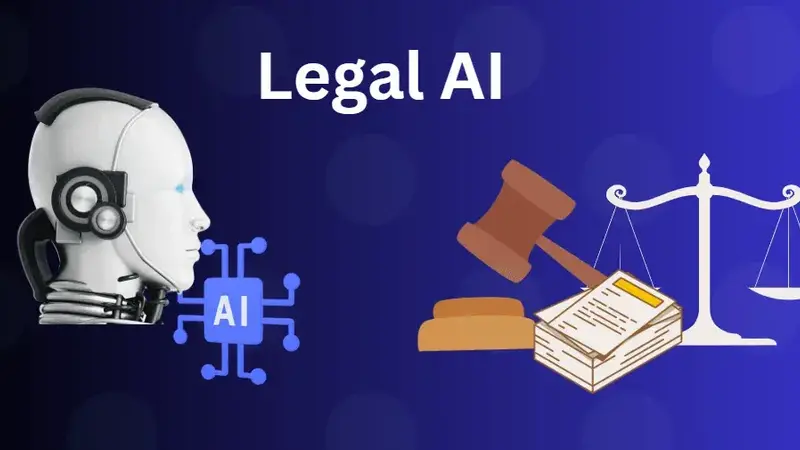Artificial intelligence (AI) has permeated many facets of our lives as technology develops, including the legal industry. AI legal assistants are transforming how legal services are provided, making it easier and more efficient for individuals and law firms to manage their daily legal tasks. Many firms are adopting AI technologies to offer enhanced services. One such firm is the AI law firm, known for its innovation in the legal industry.
The integration of AI in the legal field offers numerous advantages. These digital assistants work tirelessly around the clock, ensuring users get the support they need whenever needed. Artificial intelligence (AI) increases overall efficiency by automating repetitive work and allowing human attorneys to concentrate on more complex cases. Legal research, document review, and contract management can be performed accurately and efficiently, contributing to a seamless workflow.
Key Takeaways
AI legal assistants streamline mundane legal tasks and improve productivity.
They offer 24/7 support, making legal assistance more accessible.
Using AI in legal services can lead to more accurate and unbiased results.
AI can help lower legal costs for both firms and clients alike.
Benefits of AI in Legal Services
One of the primary benefits of AI legal assistants is their ability to handle repetitive and mundane tasks with remarkable speed and accuracy. It allows human lawyers to focus on more complex and strategic aspects of their work. AI can also quickly evaluate massive amounts of data, producing insights and suggestions that would take human workers much longer to generate. It not only saves time but also minimizes the risk of human error.
Streamlining Document Management
AI excels in managing legal documents, from drafting contracts to reviewing legal texts for errors. According to a Stanford University study, AI tools have been found to significantly reduce mistakes in legal research by cross-referencing multiple sources quickly and accurately. Ultimately, this capacity protects clients’ interests by guaranteeing that all data is current and complies with the most recent rules.
How AI Improves Accuracy and Reduces Bias
AI legal assistants are programmed to follow strict logical guidelines, which helps reduce human biases. Unlike human lawyers, who might inadvertently allow their personal biases to influence their work, AI operates based on established criteria, ensuring consistent and fair outcomes. This is especially crucial in legal proceedings, where impartiality is critical to justice.
Data-Driven Decisions
AI’s ability to handle and analyze vast amounts of data contributes to more accurate and data-driven decisions. That is crucial in the legal sector, where minor errors can have significant consequences. AI ensures that legal research and analysis are thorough, comprehensive, and error-free. Artificial intelligence (AI) provides fact-based, perceptive analysis by identifying patterns and trends that human attorneys might miss.
Accessible and Affordable Legal Assistance
The availability of AI legal assistants makes legal help more accessible and affordable. These digital assistants offer round-the-clock support, ensuring clients can get the assistance they need whenever required. Hiring full-time legal counsel is especially advantageous for individuals and small enterprises that lack the necessary resources. AI democratizes access to legal services by providing on-demand legal advice, leveling the playing field for all clients.
Cost Reduction
One of AI’s significant advantages in the legal industry is its potential for cost reduction. By automating routine tasks, AI reduces the need for extensive human resources, decreasing overheads and making legal services more affordable for clients. It benefits clients and allows law firms to operate more efficiently, attracting a broader clientele and staying competitive in a rapidly evolving market.
Real-Life Applications
AI legal assistants are used in various practical applications. AI is making significant inroads into the legal profession, from drafting legal documents to performing due diligence and assisting in litigation processes. For instance, BBC News reported on how AI is utilized for predictive analytics in predicting case outcomes.
Case Outcome Predictions
AI can analyze past case data to provide insights into the likely outcomes of current cases. It helps lawyers strategize better and increases their clients’ chances of favorable outcomes. Predictive analytics may save time and money by determining the most successful legal methods. By anticipating future trends and legal scenarios, AI assists in proactive decision-making, making law firms more prepared and adaptable.
Challenges and Limitations
While AI legal assistants offer numerous benefits, they are not without challenges. Issues such as data privacy, the need for continuous updates, and the inability to handle highly nuanced or emotion-driven cases are some of the limitations that need to be addressed. Law firms must balance AI with human oversight to maintain ethical standards.
Data Privacy Concerns
One of the primary challenges is ensuring data privacy. Sensitive information is involved in legal proceedings; hence, AI systems need to be well-secured to safeguard client information. Firms must implement stringent cybersecurity protocols and comply with legal regulations such as GDPR to mitigate risks and maintain client trust.
AI’s Role in the Legal Sector
Artificial intelligence has a bright future in the legal industry if ongoing research and development efforts are directed toward enhancing its capabilities. Emerging technologies like natural language processing (NLP) and machine learning are expected to make AI legal assistants even more efficient and indispensable to the legal sector.
Continual Advancements
As AI continues to evolve, its applications in the legal industry are likely to expand further. Continuous advancements in AI technology will lead to even more sophisticated and capable legal assistants, transforming the landscape of legal services. Innovations such as intelligent contract analysis, automated dispute resolution, and enhanced client interaction models hold the potential to revolutionize traditional legal practices.
Conclusion
AI legal assistants revolutionize the legal industry by boosting efficiency, minimizing biases, and increasing accessibility. While challenges remain, the potential for AI to revolutionize legal services is undeniable. As technology continues to evolve, so will AI’s capabilities and applications in the legal realm. By embracing AI, law firms can offer more innovative, faster, and affordable services, ultimately benefiting the legal ecosystem. Visit here for more details.
